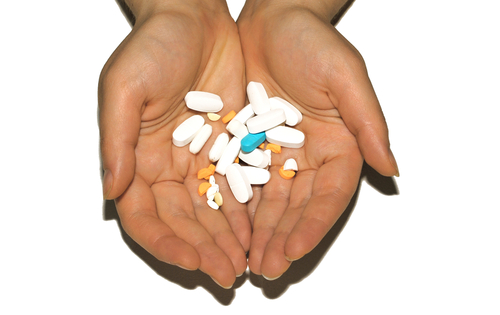Lycera announced the start of a Phase 2 clinical trial testing its lead candidate, LYC-30937-Enteric Coated, as an oral treatment for moderate chronic plaque psoriasis.
The randomized, placebo-controlled and double-blind study, called UPRISE (NCT02872285), will evaluate the treatment for efficacy and safety. About 30 patients will be randomized to receive either a placebo or LYC-30937-EC at 25 mg once daily, a dose that demonstrated a positive safety and tolerability profile in Phase 1 clinical trials. Patients will be treated for 12 weeks, with an additional two-week safety follow-up. (The trial is currently recruiting patients at seven U.S. sites.)
Its primary efficacy endpoint is the mean percent change from baseline to Week 12 in the Psoriasis Area and Severity Index (PASI), a measure of both disease severity (erythema or redness, induration or thickness, and desquamation or scaling) and the degree of affected areas.
LYC-30937 is a an oral and gut-directed ATPase modulator, designed to selectively target and induce cell death in disease-causing immune cells (T-lymphocytes), while sparing normal cells. In preclinical studies, it was found to have therapeutic potential in autoimmune diseases such as psoriasis and ulcerative colitis.
“[T]his study marks a major accomplishment for the investigation of a gut-directed therapy to target the treatment of peripheral autoimmune disease,” Paul Sekhri, president and CEO of Lycera, said in a press release. “Based upon the results of our preclinical studies, we believe LYC-30937-EC can impact pathogenic lymphocytes that traffic through the human gastrointestinal tract before these lymphocytes can migrate to distal tissues, such as the skin, causing psoriasis. If successful, this trial may lead the way to exploring LYC-30937-EC in other diseases, such as rheumatoid arthritis and multiple sclerosis.”
Because delivery of LYC-30937-EC is localized to the gastrointestinaly tract, the treatment has the potential to avoid the global immune suppression and other side effects associated with current treatments administered systemically, the company said.
“Psoriasis can pose a significant burden for patients, i.e., chronic itching, stinging, and pain, having a profound negative impact on daily functions and diminished quality of life,” said Jerry Bagel, MD, medical director for the Psoriasis Treatment Center of Central New Jersey and a trial investigator. “In addition, many patients experience depression, decreased self-esteem, and anxiety, and new oral therapies would be helpful. I believe LYC-30937-EC represents a unique mechanism of action and a promising approach to targeting the cells that cause inflammation and are the hallmark of psoriasis.”


